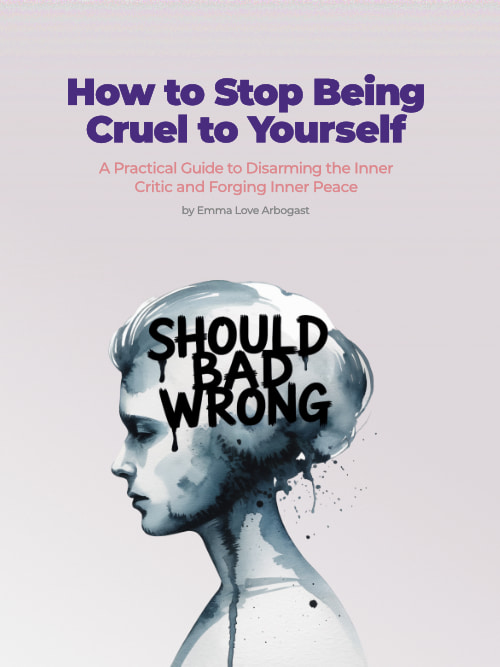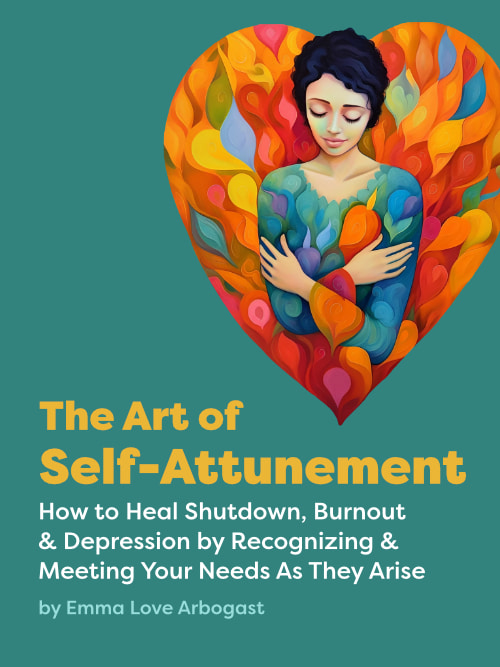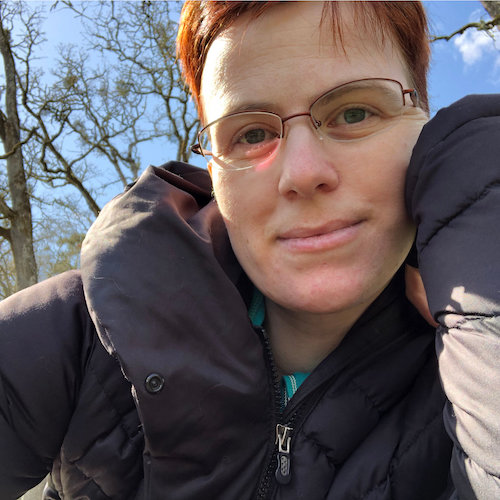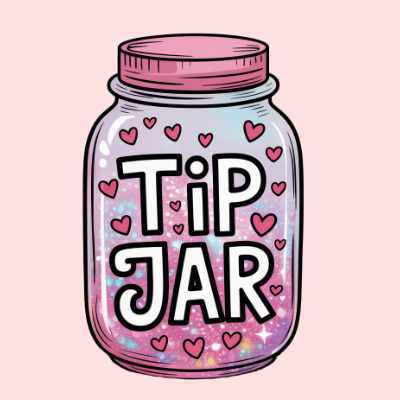My Brain Lies to Me: Self-Help for Cognitive Distortions
Classic cognitive distortions are things like:
- black and white thinking (or all or nothing thinking)
- overgeneralizing: “Nothing ever goes right for me.”
- only seeing the negative in situations that contain complexity
- jumping to conclusions: “She didn’t text back—she must be mad at me.”
- catastrophizing: “My boss is upset. I’m going to lose my job, and then I’ll be homeless.”
- personalization (blaming everything on yourself, even if it is out of your control)
- emotional reasoning (believing something is true because it feels true)
While these are useful to know, they don’t always capture the full picture. We build complex emotional survival strategies out of these thinking errors, which become response patterns to stress. They’re not just thoughts, they’re a set of emotion-fueled mental states and behaviors. What makes them hard to untangle is how much they feel true, and how automatic they become.
I think of these as emotional distortions or cognitive-emotional loops. They become entrenched because they serve a purpose, usually to protect us from pain we’ve experienced before.
Over time, I learned to see them as signals. When you learn to decode them, they tell you about your needs, your values, and your dreams—and this is the key to resolving them.
Depression and angst as a signal of needing rest and reconnection
I first became aware of these loops in my 20s. I had struggled with depression since I was a teenager, and I would get into funks that would last weeks.
But every time I started feeling better, my brain would tell me the soothing story that it would never happen again, so I didn’t need to do anything about it. It took me a long time to realize I was stuck in a loop that was a lie—it definitely would happen again if I didn’t get help.
I had another breakthrough when I realized that when my brain said What is the point? Nothing matters anyway, it really meant I’m tired.
I made a rule for myself that as soon as I noticed my thoughts going in that direction, I would ask myself if I was tired, and if the answer was “yes”, then I would drop everything and take a nap. (Literally, the answer was always “yes”!).
This was a revelation, as it immediately eliminated the painful downward spirals of existential angst that I used to get lost in. I had learned to take my depression thoughts seriously, but not literally. They were a signal of my needs, and I needed to hear the signal, not believe the thought.
Fantasy as a signal of needing a realistic roadmap & support
My brain also lies to me through limerence, or romantic fantasies. In college, I spent years lovesick over someone who was in reality only a friend.
Then I graduated to spending far too long convinced that bad relationships would become good any day now, the way I pictured them in my mind. It took me years to swim free of the lie of a just-out-of-reach hopeful future that kept me enduring a very painful present.
The fantasy showed me what I crave: depth, warmth, and stability. It also showed me that I had so little confidence in being able to find those things in real life, that some part of me gave up a very long time ago, and discovered fantasy as a way to survive deprivation. I was feeding myself a fantasy of nourishment, because I didn’t believe real nourishment was available for me.
To outgrow the allure of romantic fantasy, I had to work through oodles of trauma and insecure attachment and learn how secure relationships actually work. But what my fantasies pointed to was a need for support and growth to make my desires realistic for me.
I couldn’t just jump from an emotionally deprived and terrified child surrounded by dysfunction, to a stable adult in a functional relationship. I needed to build myself a ladder and take it one rung at a time.
Defensiveness as a signal of needing boundaries
The lie here is more subtle, but it’s some version of, I’m under threat, when I actually just need to notice something is not for me or not about me.
I notice it as an urge to be sarcastic, to Well, actually someone’s post, or to explain and justify my choices or existence. When in reality, I could just keep scrolling, change the subject, or politely excuse myself from the conversation.
The internal skills that allow us to do this are self-validation, self-authority, detachment, and differentiation.
- I can be me, and you can be you.
- Someone making a different choice is not a judgment of my choice and vice versa.
- I don’t have to argue, I just have to be clear about my boundaries.
- I can still make my own choices, even if other people don’t agree or approve of them.
- We can disagree and still get along.
Detachment is the opposite of enmeshment, where your sense of boundaries is fuzzy and confusing. When you are enmeshed, you feel like you can’t be yourself unless someone else is the same.
I grew up in a very enmeshed family system, and the idea that I could just say no thanks was a new concept to me. My bodymind starts mobilizing for a defense of my right to be myself, even when nobody is actually questioning it.
In these situations, I find it helpful to say to myself:
- What am I telling myself?
- This is not true.
- What I need is: _____.
The takeaway: your brain is doing its best
When our brain is shaped by dysfunctional environments, its signals get screwy. But it’s always trying to tell you what you need, what you love, and what you want more of and less of. There is gold in the signals, even if takes time and space and support to decode them.
When I look back at these patterns—depression, fantasy, defensiveness—there is so much painful history in them. I’ve made it sound simple, but it’s really not. It’s taken years and years of struggle and work to get underneath these automatic patterns and understand and then meet the needs they represent. And wherever you are at in that process, I am sending you oodles of compassionate vibes of self-care and self-love. 💚
Self-love is a set of skills you can learn

Stop Being Cruel to Yourself
$2.99


Hey there! If you're new here, welcome to the Emmaverse! 🌈✨
About me: I'm autistic/ADHD and I write about how to be free and happy from the inside out.
Keep in touch?
Self-Liberation Society

